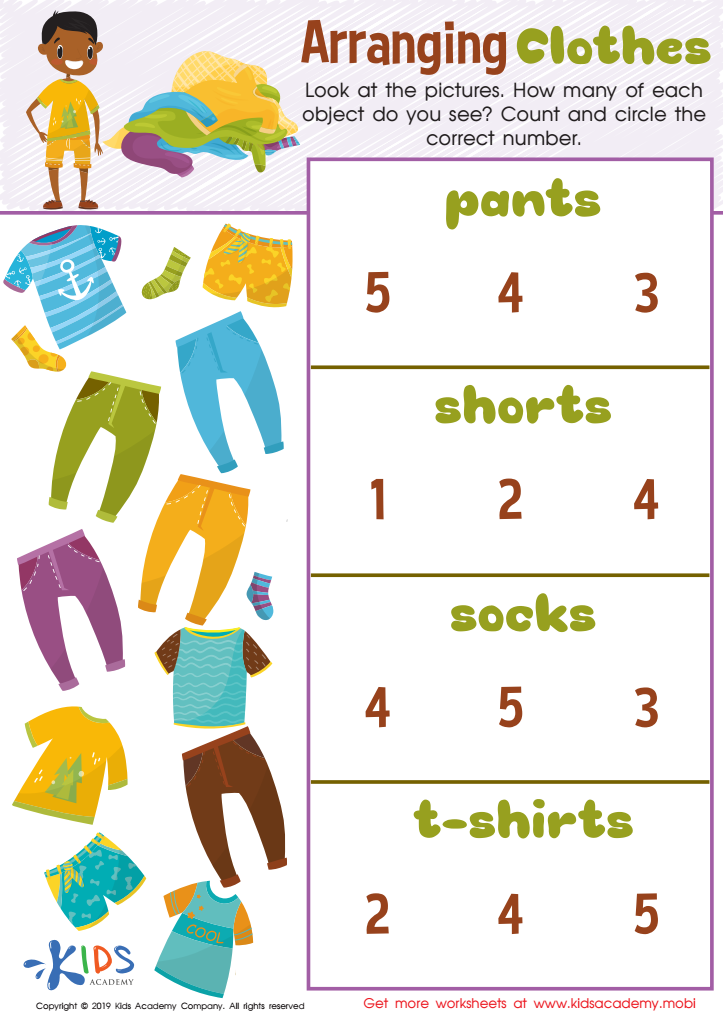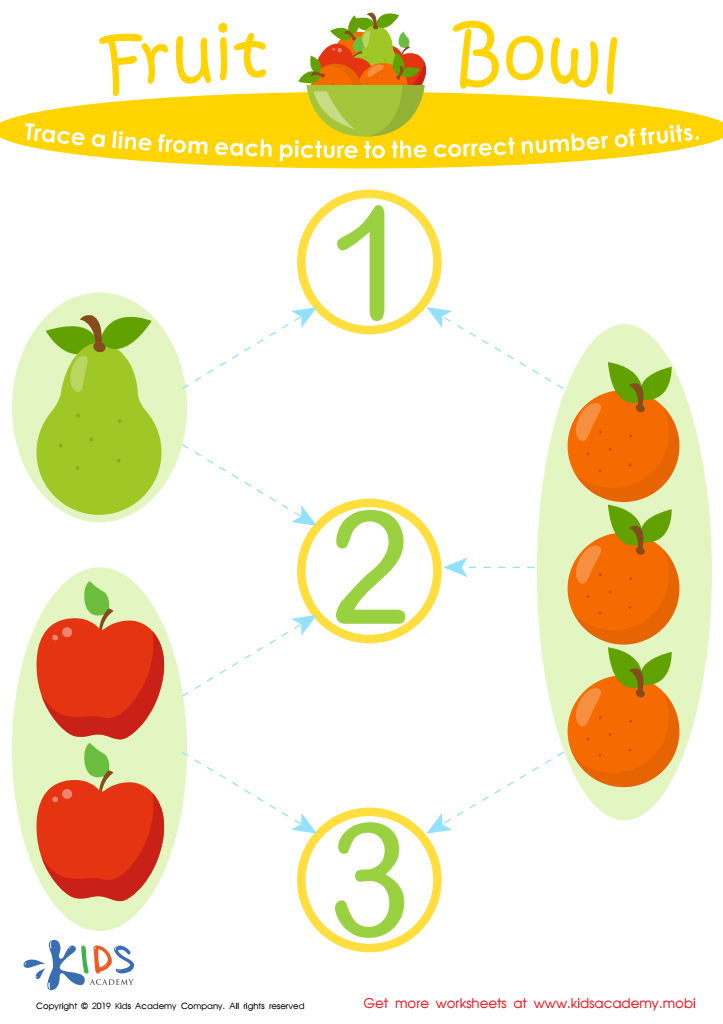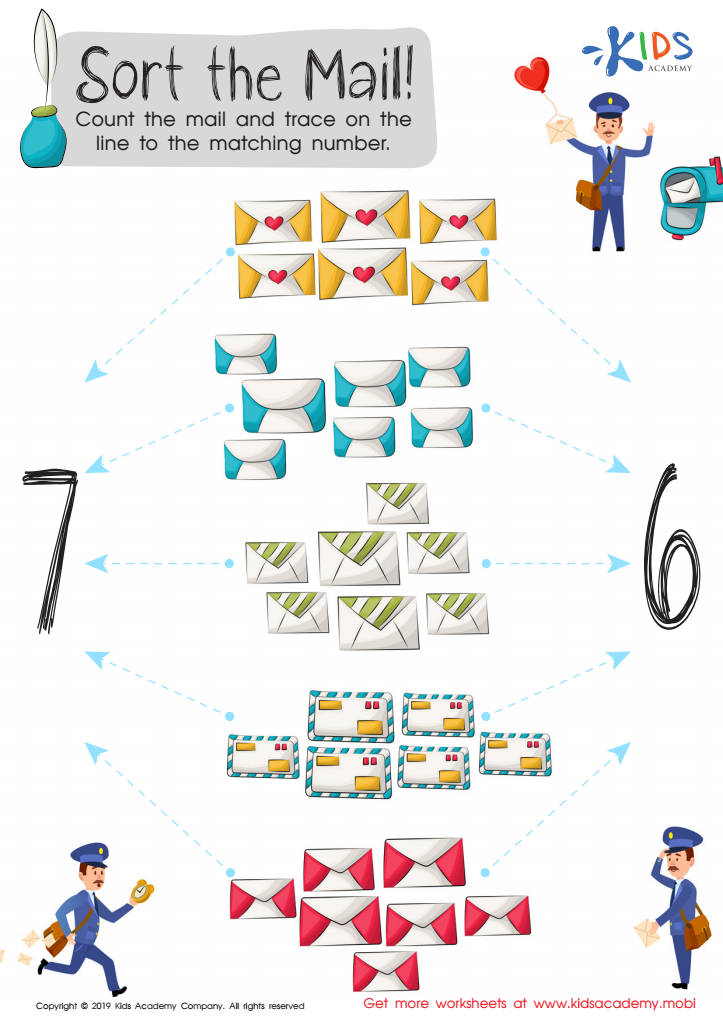Sorting skills Numbers 0–10 Worksheets for 3-Year-Olds
3 filtered results
-
From - To
Enhance your child's early math foundation with our Sorting Skills Numbers 0-10 Worksheets for 3-Year-Olds. Designed to captivate young learners, these printable activities combine fun and learning, making number recognition and sorting a delightful adventure. Featuring vibrant illustrations, these worksheets help toddlers classify and order numbers, reinforcing counting and fine motor skills. Perfect for at-home practice or preschool settings, our expertly crafted exercises ensure your child gains confidence in sorting and sequencing, paving the way for future math success. Boost your little one's development with these engaging educational tools from Kids Academy.


Arranging Clothes Worksheet


Fruit Bowl Worksheet


Sort the Mail Worksheet
Developing sorting skills with numbers 0–10 in 3-year-olds lays a fundamental groundwork for mathematical understanding. These early skills are about more than just recognizing and arranging numbers; they set the stage for essential cognitive development.
First, sorting helps young children grasp concepts of categorization, organization, and comparison. Recognizing patterns, similarities, and differences enhances their analytical thinking and problem-solving abilities. This foundational skill will support more complex mathematical operations as they grow, such as addition and subtraction.
Moreover, sorting numbers encourages children to pay attention to details, boosting their observational skills and their ability to follow instructions. It also introduces them to the basic principles of number sense, helping them understand quantity and the relationships between numbers.
Socially, sorting activities often involve interaction and communication, fostering collaborative skills and language development. Whether the exercise is guided by a parent or teacher, it also provides an opportunity for reinforcing bonds and building a relationship where learning is celebrated.
In essence, solidifying sorting skills with numbers 0–10 equips young learners with essential cognitive, social, and emotional tools. Parents and teachers who prioritize this foundational step are setting children up for success, both academically and personally, in their formative years and beyond.

 Assign to My Students
Assign to My Students
















